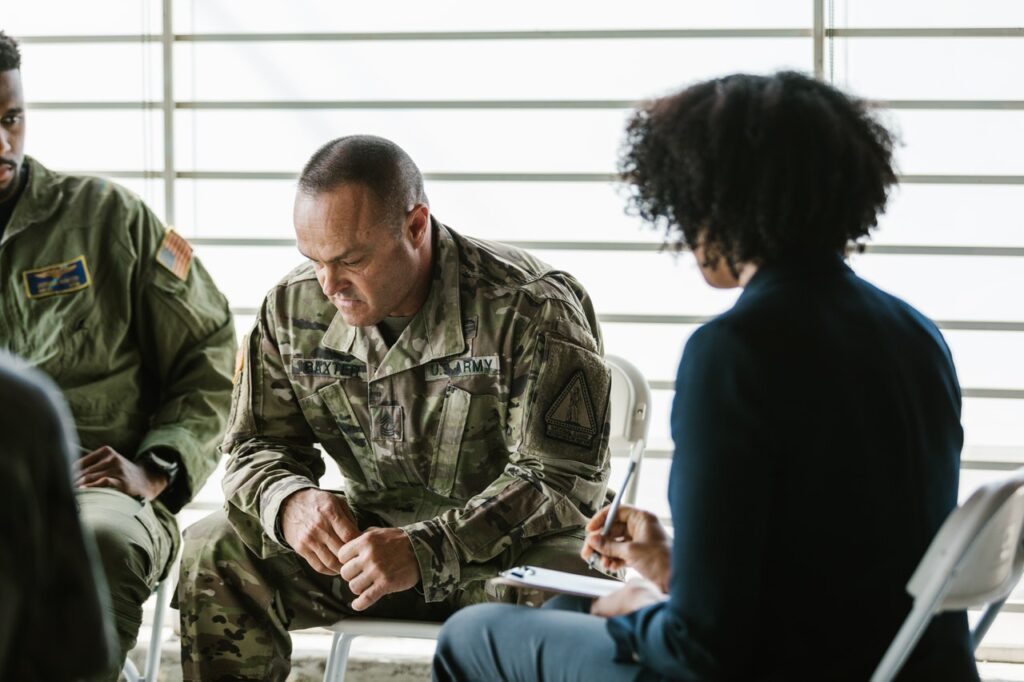
Everything Veterans and Their Loved Ones Should Know About Supporting Someone With PTSD
Post-traumatic stress disorder affects people of all backgrounds, but veterans are at a higher risk of developing it. According to studies, 20% of Afghanistan and Iraq War veterans live with PTSD. Fortunately, there are ways to heal. If you're a veteran or have a loved one struggling with this condition, here are the best ways to start.
Learn About the Condition
The first step in managing PTSD is understanding the condition. PTSD develops when individuals experience traumatic events. For veterans, that usually stems from being in combat. While many fully recover from a traumatic event's stresses, some people have lingering symptoms that signal PTSD. Several factors impact who does and doesn't develop the disorder:
- Repeated trauma
- Genetics
- Additional stresses
- Pain or injury during the traumatic event
- Previous anxiety or depression
Understand the Symptoms
PTSD symptoms are wide-ranging and can vary from case to case. The following are some of the most common:
- Being easily startled
- Being more irritable
- Having difficulty sleeping
- Being physically responsive to memories of the traumatic event
- Having recurrent nightmares
- Feeling emotionally distant
- Avoiding conversations or feelings about the traumatic event
These symptoms can drastically change individuals' behavior. Loved ones must remember that those struggling with PTSD don't intend to offend by their behavior — they're just trying to cope. Once you understand the cause of certain actions, you can better support your veteran family member or friend.
Access Mental Health Services
Mental illness deserves just as much care as any physical illness. If you broke a bone, you wouldn't expect yourself to deal with it alone — you'd go to a doctor to set it. When you have PTSD, you need the assistance of a mental health professional to manage the condition. Fortunately, technology makes it easier than ever to find info about online counseling and access care.
Remember, as a veteran, access is always available online from Veterans Affairs through My HealtheVet.
If you're not comfortable seeing a therapist in person, you can set up a virtual appointment. That way, you can speak to a professional without leaving your house. You'll still receive the same standard of care with these benefits:
- No travel expenses
- Cheaper costs
- Wider selection of therapists
- Increased privacy
- More convenience
- There are many types of therapy proven to reduce the severity of PTSD symptoms:
- Written Exposure Therapy
- Cognitive Processing Therapy
- Eye Movement and Desensitization and Reprocessing Therapy
- Prolonged Exposure Therapy
By working with a therapist, you can find one that works for you.
Identify Triggers
Triggers can instigate PTSD symptoms by reminding vets of the traumatic event. Since triggers vary by case, vets should work with their therapists to identify their own. The following are some of the most common:
- Certain places
- Arguments
- Specific sounds or smells
Loved ones can help vets avoid identified triggers or cope with them if avoidance isn't possible.
Find a Supportive Community
Veterans with PTSD and their loved ones can benefit from a supportive community. Veterans Affairs can recommend organizations that work with returned veterans and their families. You can also find support through faith-based organizations and group intensive peer-support programs. The key is finding a community that understands your experiences and offers resources when you're struggling.
Some people find solace in helping others. You may find a new sense of purpose by working with special needs communities or assisting other vets living with disabilities.
PTSD has a profound effect on veterans and their loved ones. However, proper mental health treatment and a supportive environment can help those with the disorder find peace and fulfilling lives.